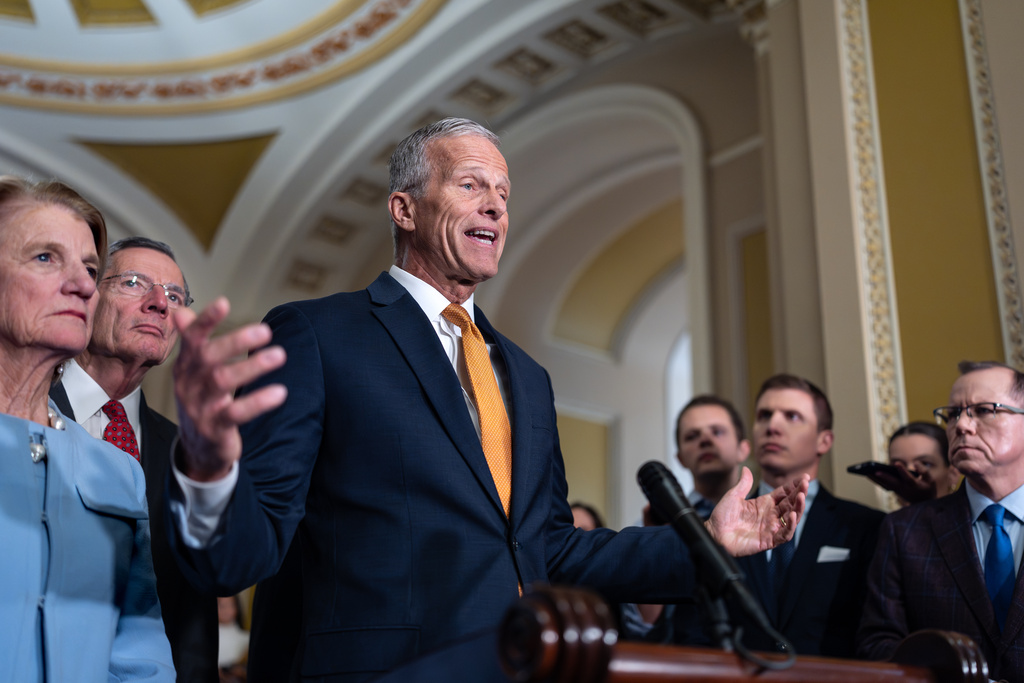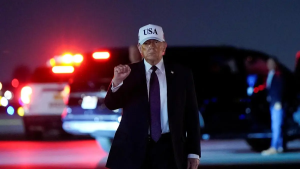Republican Adviser Warns Against Eliminating Senate Filibuster Amid Government Shutdown Debate

Senate Majority Leader John Thune, R-S.D., joined at left by Sen. Shelly Moore Capito, R-W.Va., and Sen. John Barrasso, R-Wyo., the GOP whip, speaks with reporters following a closed-door meeting with Vice President JD Vance on day 28 of the government shutdown, at the Capitol in Washington, Tuesday, Oct. 28, 2025. (AP Photo/J. Scott Applewhite)
By Jim Thomas | Friday, 31 October 2025 08:31 PM EDT
Political adviser Dick Morris urged Senate Republicans to reject calls to abolish the filibuster, emphasizing that the 60-vote threshold is essential for preventing harmful legislation. He argued that dismantling the rule is unnecessary to resolve the ongoing government shutdown.
Morris told Newsmax on Friday that the GOP should pressure Democrats to reopen the government without altering Senate rules, which could weaken Republican influence in future sessions. Speaking on “Rob Schmitt Tonight,” he addressed concerns from conservatives after President Donald Trump advocated using the “nuclear option” to eliminate the filibuster and end the legislative stalemate.
“I think the case is strong, and I do not think we should override the filibuster just to get the government reopened,” Morris said. He highlighted economic and social pressures, including strains on programs like food stamps and nutrition assistance for women and children, as tools to compel Democrats to act.
Trump recently called on Republicans to “play their TRUMP CARD” and eliminate the filibuster, but GOP leaders such as Senate Majority Leader John Thune and House Speaker Mike Johnson have resisted. They argued that the filibuster safeguards minority rights and maintains the Senate’s deliberative role.
Morris echoed this stance, warning that removing the rule could backfire if Democrats regain control of the chamber. “We don’t need to get rid of the filibuster,” he said. “Getting a majority in the Senate is not that hard, but getting 60 votes is. It could stop a lot of bad legislation.”
He maintained that fiscal realities, rather than procedural changes, would drive both sides toward compromise. “We have enough things going on now,” Morris stated, stressing that economic pressures alone could force a resolution.




